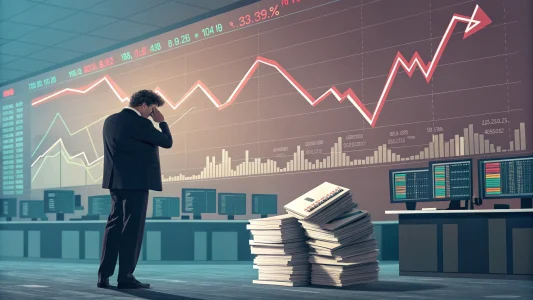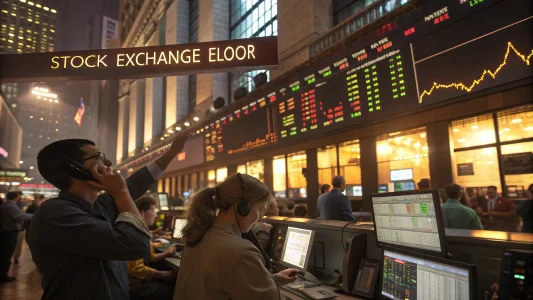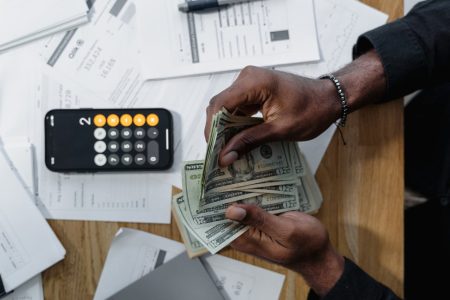Operating in uncertain markets — from both a company’s and investor’s viewpoint — can feel a lot like walking a tightrope. Between shifting legislation on one side and government instability on the other, the path of opportunity can appear narrow and precarious. That’s when leveraging defined frameworks could provide the solution.
Emerging markets retain many of the perks of established ones. This includes stock exchanges and a unified currency. However, they typically lack the regulatory regime that brings transparency to more developed markets. This positions emerging markets as prime opportunities for companies to access new markets and for investors to participate in the growth associated with developing countries. Yet, they can also carry much greater risks than their established counterparts.
Table of Contents
ToggleReal Risks in Global Investing
Even the most fearless tightrope walkers can be thrown off balance. A regime change or currency crash can wipe out emerging market gains in an instant. Meanwhile, companies with better connections to people in power might have unfair advantages. In parts of South America, for instance, volatile government activity poses a constant risk for public businesses. Governments in countries such as Venezuela and Nicaragua can seize or repatriate publicly traded assets at a moment’s notice.
China poses similar risks, as evidenced by its recent seizure of a uranium company. Shockwaves from moves like these have made Chinese lenders more reluctant to approve transactions. And, in high-yield markets, new capital continues to become more expensive.
Sometimes the rope starts to fray altogether. Many of the problems in emerging markets have nothing to do with corruption or government interests; these markets are simply more vulnerable to shifts outside their control. Mexico and Russia, for instance, recently took hits when President Donald Trump announced stricter tariffs on foreign aluminum and steel.
In the cryptocurrency world, unstable markets continue to throw investors for a loop. South Korea banned and then unbanned the trading of cryptocurrency in its markets, leading to massive swings in crypto valuations along the way. China banned all trading and ICOs in 2017, and while its black market of crypto continues to flourish in secret, regulators are buckling down.
In every emerging market, the story is the same. There are high risks and high rewards. Companies and investors that wish to come out on the right side of the equation must tread carefully.
Navigating an Unsteady Line
The companies that succeed in emerging markets know how to structure their operations to account for their environments. As Philippe Petit did by practicing for his famous high-wire walk 1,350 feet above New York City, they insulate themselves from potential interruptions as thoroughly as possible to minimize investor risk. In addition, these companies strive to disclose their operations accurately in public markets, so investors feel confident that their money won’t disappear overnight.
An investor who wants to buy a stake in a uranium company, for instance, might consider one option in Canada and another in China. The Canadian mine carries a much lower risk factor than the mine in China because Canada offers a better financial situation, more government support, and more transparent operating procedures. Meanwhile, the Chinese government operates more secretly, and the threat of shutdown or seizure always looms.
Obviously, investors looking at the long-term should choose the option without the threat of total loss. That shouldn’t disqualify the Chinese investment completely, though, especially for shorter-term investments. Perhaps the Chinese company is in position to take a large market share if nothing goes wrong. The right choice is all about timelines and risk tolerance.
The Ups and Downs of Regulatory Lenience
Like any high wire in a big gust of wind, industries operating in emerging markets experience a certain amount of bounce. The question for businesses in emerging markets is simple: How can they bring real transparency to transactions and assure investors that their markets can be trusted? Good companies will always pique investors’ interest, but when those companies operate in unstable markets, investors might not be willing to put their money at risk.
When an investor can’t trust an investment, the first step is to establish a line of communication. For instance, when TSX Venture Exchange (where I am the managing director) works with companies in emerging markets, we require Canadian market experience within management and board membership in order to ensure an understanding of our disclosure terms and markets. That person becomes the go-between for both sides, friendly to the company and familiar with the requirements of our exchange. Think of these directors as a supporting hand from the ground below — there to ensure you retain your balance.
Companies that are publicly traded on high-profile exchanges offer transparency into markets that might otherwise lack it. The more companies that get on board, the better. Critical mass draws investors to review companies, banks to support them, research analysts to point the way forward, and accounting firms familiar with specific jurisdictions to provide transparency.
The Marriage of Emerging Markets and Public Exchanges
When companies in emerging markets take the initiative to get listed on a public exchange, both sides benefit. The companies themselves gain access to stability thanks to an exchange’s regulatory infrastructure. Also, investors gain greater exposure to valuable opportunities through the mechanism of the exchange.
Companies that list themselves early get to establish a proprietary foothold to grow their businesses. They identify a core need and consumer base, establish a differentiating edge, and may even grow to acquire companies that fill niches relevant to their business. Public markets work to the advantage of the acquirers more than the acquired.
Not just any company in an emerging market can get into a public exchange. You wouldn’t send an untested acrobat out across the Grand Canyon. Reputable exchanges require listed companies to adhere to several requirements. They offer the opportunity for companies to meet with exchange staff to pose questions and confirm eligibility before making a formal listing application.
That said, when requirements are met, there is a huge opportunity for companies to benefit the emerging markets they enter. For instance, Goldcorp, a company listed on the TSX Venture Exchange, has made a commitment to responsible mining practices and provides infrastructure — including schools and water systems — to the countries it works in. Similarly, the Radcliffe Foundation, founded by successful entrepreneurs, is dedicated to helping charities get started, funded, and achieve self-sustainability. Companies that participate in these social initiatives often achieve higher valuations, better access to capital, and boost their transparency with investors. And, only companies that fully commit to the stability of a public exchange over the wild side of an emerging market secure listings.
Achieving Balance with Defined Frameworks
For investors, companies from emerging markets on public exchanges offer enticing opportunities. However, they should not necessarily make up the bulk of any portfolio. The benefit of emerging markets to an investor is the potential for a risk/reward payoff. By balancing their exposure to these markets, investors can capitalize on opportunities without risking it all. Plus, they can ensure the companies they do invest in are benefiting their local communities. As is the case with any investment, caution and proper research are key.















